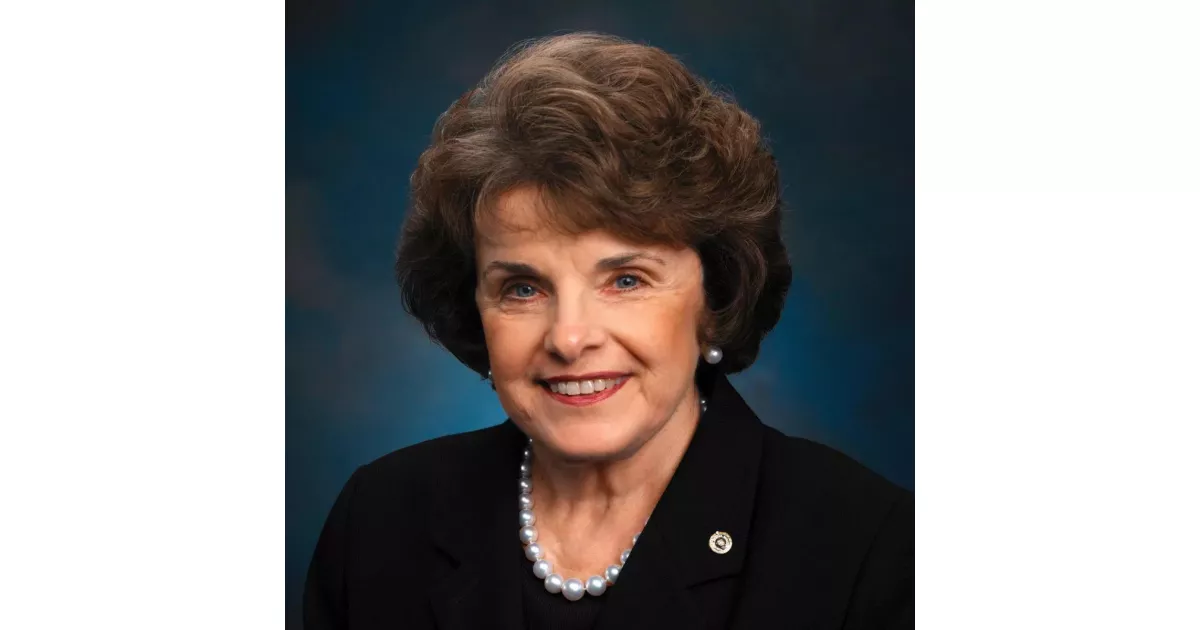Life is full of challenges, and Dianne Feinstein faced many. Discover key struggles and how they were overcome.
Dianne Feinstein was a prominent American politician who served as a U.S. Senator for California from 1992 until her death in 2023. A member of the Democratic Party, she was a trailblazer for women in politics, known for her moderate stance and focus on gun control, national security, and environmental protection. Prior to her Senate career, she served as the Mayor of San Francisco from 1978 to 1988, navigating the city through challenging times. Her long career in public service left a lasting impact on California and the nation.
1971: Unsuccessful Mayoral Run
In 1971, Dianne Feinstein unsuccessfully ran for mayor of San Francisco against Mayor Joseph Alioto.
1975: Lost Runoff Slot in Mayoral Race
In 1975, Dianne Feinstein lost the contest for a runoff slot in the mayoral race to Supervisor John Barbagelata.
1976: Targeted by NWLF
In 1976, Dianne Feinstein was targeted by the New World Liberation Front, including a bomb placed at her home.
1979: Cable Car System Shutdown
In 1979, Dianne Feinstein faced the challenge of the San Francisco cable car system being shut down for emergency repairs.
1982: Proposed Handgun Ban and Faced Recall Attempt
In 1982, Dianne Feinstein proposed banning handguns in San Francisco, leading to a recall attempt which she survived.
1983: Faced recall attempt
In 1983, Dianne Feinstein faced a recall attempt.
1990: Unsuccessful Gubernatorial Bid
In 1990, Dianne Feinstein made an unsuccessful bid for governor of California, losing to Pete Wilson.
1992: Fined for Campaign Finance Violations
In 1992, Dianne Feinstein was fined $190,000 for failure to properly report campaign contributions and expenditures in her 1990 campaign.
1994: Federal Assault Weapons Ban Became Law
In 1994, Feinstein introduced the Federal Assault Weapons Ban, which became law.
1996: Opposition to Proposition 215
In 1996, Dianne Feinstein opposed Proposition 215, which aimed to legalize the medical use of cannabis in California.
1996: Vote Against the Defense of Marriage Act
In 1996, Dianne Feinstein was one of 14 senators who voted against the Defense of Marriage Act (DOMA), which defined marriage as a union between a man and a woman for federal law purposes.
2004: Expiration of Federal Assault Weapons Ban
In 2004, the Federal Assault Weapons Ban, which was introduced by Feinstein, expired.
January 2013: Proposed New Assault Weapons Ban
In January 2013, Feinstein proposed a bill with Representative Carolyn McCarthy to ban certain assault weapons and large-capacity magazines, following the Sandy Hook Elementary School shooting.
2015: Vote Against Rohrabacher-Farr Amendment
In 2015, Dianne Feinstein was the only Democrat at a Senate hearing to vote against the Rohrabacher–Farr amendment, legislation that limits the enforcement of federal law in states that have legalized medical cannabis, citing her belief that cannabis is a gateway drug.
2016: Opposition to Proposition 64
In 2016, Dianne Feinstein opposed Proposition 64, the Adult Use of Marijuana Act, which aimed to legalize recreational cannabis in California.
April 2017: Booed at Town Hall for Opposing Single-Payer Health Insurance
In April 2017, Feinstein was booed at a town hall meeting in San Francisco when she stated that she did not support a proposal for single-payer health insurance.
2017: Criticism of Transgender Military Enlistment Ban
Later in 2017, Dianne Feinstein criticized the banning of transgender enlistments in the military under the Trump administration.
January 2018: Concerns over Trump Administration's Temporary Protected Status Termination
In January 2018, Dianne Feinstein voiced concerns at a Senate Judiciary Committee hearing that the Trump administration's decision to end temporary protected status might be racially motivated, citing Trump's comments about African countries, Haiti, and El Salvador.
July 27, 2018: Reports of Chinese Staff Member Reporting to China's Ministry of State Security
On July 27, 2018, reports surfaced that a Chinese staff member who worked for Feinstein was caught reporting to China's Ministry of State Security. The staff member was later forced to retire.
February 2019: Confrontation with Sunrise Movement
In February 2019, Feinstein was confronted by youth from the Sunrise Movement about the Green New Deal, stating "there's no way to pay for it".
October 2020: Cognitive Decline Reports
In October 2020, media reports indicated that Dianne Feinstein was experiencing cognitive decline and short-term memory loss.
2020: Reports of Cognitive Decline
In 2020, investigative journalist Jane Mayer reported that some colleagues and staffers had observed cognitive decline in Feinstein for several years.
2021: Criticism Over Supreme Court Nomination Hearings
In 2021, After her performance at Amy Coney Barrett's October 2020 Supreme Court nomination hearings was criticized, Feinstein did not seek to chair the Senate Judiciary Committee or serve as its ranking member.
2022: Continued Reports of Cognitive Issues
In 2022, The New York Times reported that Feinstein struggled to remember her colleagues' names, meetings she had attended, and phone calls she had received, amidst continuing stories of her cognitive issues.
March 2023: Diagnosis of Shingles and Hospitalization
In March 2023, Feinstein was diagnosed with shingles and hospitalized, subsequently suffering complications including encephalitis and Ramsay Hunt syndrome.
May 2023: Return to the Senate
In early May 2023, Feinstein returned to the Senate floor after a 10-week absence, using a wheelchair and appearing frail. Her remark about having "been here" raised questions about her memory.
August 2023: Hospitalized After Fall
In August 2023, Feinstein was hospitalized after a minor fall at her home in San Francisco, but was subsequently cleared to return home.
2023: Hospitalization and Calls for Resignation
In early 2023, Dianne Feinstein's hospitalization for shingles stalled Biden administration nominees, leading to calls for her resignation, which she resisted.
Mentioned in this timeline

Richard Ramirez known as the Night Stalker was an American...

Bernie Sanders is a prominent American politician currently serving as...

Barack Obama the th U S President - was the...

Hillary Diane Rodham Clinton is a prominent American politician lawyer...
Facebook is a social media and networking service created in...

Kamala Harris is an American politician and attorney She served...
Trending

4 minutes ago Toriano Pride Jr. shines at NFL Combine, impressing Vikings potential draft pick.

4 minutes ago Rapinoe Reacts to Trump Invite Criticism Amidst Hockey Team's Political Debate.

5 minutes ago Townsend vs. Masarova: WTA Austin Quarterfinal Prediction and Masarova's Quarterfinal Entry

1 hour ago Cole Anthony's Status: Coach Ott Addresses Absence; Buyout Rumors Emerge

1 hour ago Cavan Sullivan, 16, Makes History Scoring Twice in Champions Cup Rout!

2 hours ago Max Landis Returns to Hollywood with G.I. Joe Movie at Paramount
Popular

Jesse Jackson is an American civil rights activist politician and...

Susan Rice is an American diplomat and public official prominent...

XXXTentacion born Jahseh Dwayne Ricardo Onfroy was a controversial yet...

Michael Joseph Jackson the King of Pop was a highly...

Barack Obama the th U S President - was the...

Hillary Diane Rodham Clinton is a prominent American politician lawyer...
